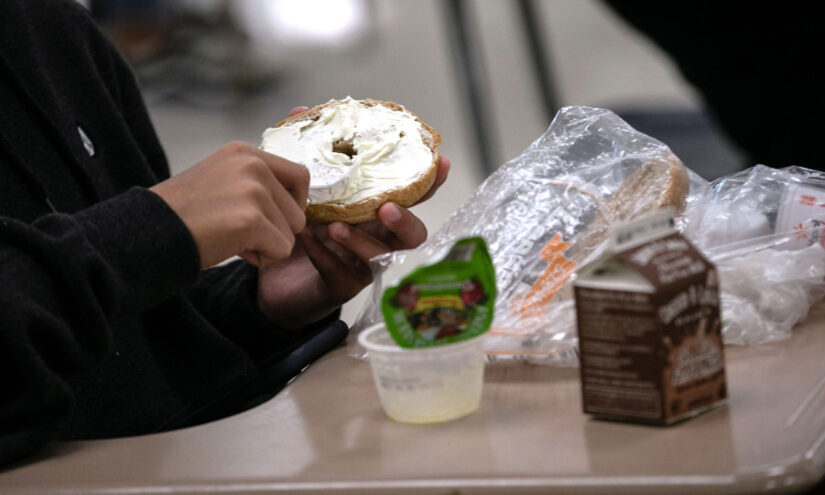During this summer, a team of students from MIT embarked on a journey to the sou …
New Hampshire’s Anti-Hunger Activists Shift Their Attention to School Breakfast
Carlos Changemaker

Many students in New Hampshire public schools do not prioritize getting breakfast at school.
According to numbers from the Food Research and Action Center, there is a significant gap in New Hampshire between the number of students who eat school breakfasts and the number who eat school lunches. In the 2021-2022 school year, an average of 95,337 students per day ate lunch provided by the school, but only 45,192 of those students also ate breakfast. This puts New Hampshire in the bottom 16 states for school breakfast participation. Educators and child anti-hunger advocates are now urging schools in the state to promote school breakfasts more effectively and make them more accessible to students.
Amy Hollar, the SNAP-Ed director at the University of New Hampshire Cooperative Extension, acknowledges that school breakfast has had a bad reputation in the past but emphasizes that it has improved and can continue to improve with increased support and collaboration. To encourage schools to prioritize breakfast, nine school districts in New Hampshire are participating in the School Breakfast Challenge, a competition organized by New Hampshire Hunger Solutions, the UNH Cooperative Extension, and the New England Dairy Council. The goal of the competition is to empower and motivate schools to launch campaigns promoting breakfast.
Educators and child anti-hunger advocates believe that school breakfasts not only provide important nutrition but also enhance attentiveness and contribute to increased reimbursement for schools. Studies have shown that students who eat breakfast at school miss fewer days of school and are more alert and focused. To support schools in expanding breakfast programs, the competition offers three participation tiers, each with increasing levels of commitment. Schools are encouraged to implement strategies such as “breakfast after the bell,” which allows students to eat breakfast after the first class begins, and provide more convenient and flexible options for students to access and consume their meals.
Alongside the competition, the UNH Cooperative Extension has developed a toolkit for “nudges,” which are techniques school administrators can use to remind students about breakfast and encourage them to participate. The campaign in New Hampshire draws inspiration from a similar program launched by the University of Minnesota, which resulted in a significant increase in breakfast participation in high schools across the state. The program used various strategies, including ad campaigns, taste tests, and offering free breakfast for all students one day a week. It saw a 49 percent higher increase in breakfast takeup compared to schools that did not receive funding and pursue the recommended strategies.
While New Hampshire does not currently provide universal school breakfasts, advocates believe that strong efforts by schools can create a word-of-mouth effect that will increase breakfast participation. They aim to promote a culture where it is considered great to eat breakfast at school, recognizing that for some students, school breakfast may be their only opportunity to have a nutritious meal in the morning.


